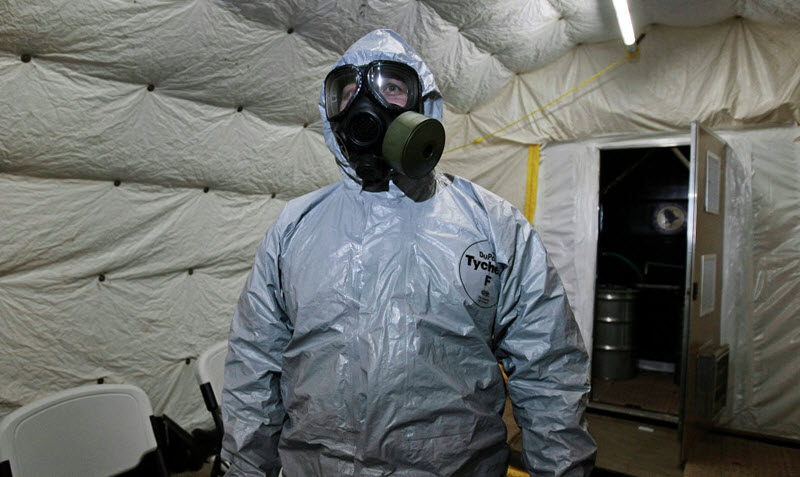
by Saeed
A few days ago, the U.S. ambassador to Netherlands, Kenneth Ward, accused Iran of failing to declare chemical weapons-related activities in violation of its commitments to the Organization for the Prohibition of Chemical Weapons (OPCW). Ward told the fourth annual meeting of the intergovernmental organization in The Hague that Washington is concerned that Iran is developing “central nervous system–acting chemicals” for offensive military purposes.
Iranian President Hassan Rouhani, and foreign minister Javad Zarif are believed to be attempting to cover this up.
The Chemical Weapons Convention includes 193 countries and is managed by the (OPCW). It resides in The Hague, Netherlands, and countries’ envoys to it are usually their ambassadors in the Netherlands. Iran has been a signatory since 1997.
Ward cited three examples of Iran’s violations of the treaty. He said that Iran failed to declare its capability to fill weapons with chemicals, didn’t announce the transfer of chemical-filled shells to Libya in the 80s, and markets CR gas as a riot control agent at defense expos.
Zarif said on Twitter that he considered U.S. “accusation” against the Iranian regime “dangerous.”
Iranian Spokesperson for the foreign ministry, Bahram Qasemi, denied the allegations, saying “The reason for such claims is animosity towards the Iranian people.”
In 2011, the Washington Post reported that U.S. officials said that the chemical munitions that were uncovered by rebels in Libya appeared to have originated from Iran.
As well, the Iranian regime has attempted to blame the the People’s Mojahedin of Iran (PMOI/MEK) for the chemical attack that the regime itself is accused of perpetrating during the Iran-Iraq war. The PMOI issued a statement in 2004, revealing that the Iranian regime planned to employ lawyers to blame the chemical attack in Halabja during the Iran-Iraq war on the Iranian opposition.
The attack targeted Kurdish dissidents in Halabja near the end of the Iran-Iraq war. It has been reported that some three thousand civilians died during the attack. The Federation of American Scientists called the poison gas attack on Halabja “the largest-scale chemical weapons attack against a civilian population in contemporary history.”
The regime’s propaganda machine accused Saddam Hussein of the atrocity.
Aabout a year after the chemical attack, Emmanuel Ludot, a French jurist and lawyer of the former Iraqi head of state, spoke publicly about a proposal made to him by the then Iranian regime’s ambassador to France, Sadeq Kharrazi. In an interview with the Franco-English television network, ARTE, Ludot said, “The Iranian ambassador told me [to] say Iranians did not gas the Kurds … [that] this was the work of the MEK.” In a subsequent interview with Aljazeera television, Ludot again stated, “I want to tell you a secret that may have dire consequences for me. The Iranian ambassador asked me personally to the embassy… the Ambassador told me to let’s make an agreement. We will say that Saddam didn’t attack the Kurds with [chemical] gas and you say that the Iranians didn’t attack the Kurds with gas. Then we will present a case that the PMOI has used these gases against the Kurds. Thus, the guilt will be on someone else and all of us will be safe. What do you think?”







